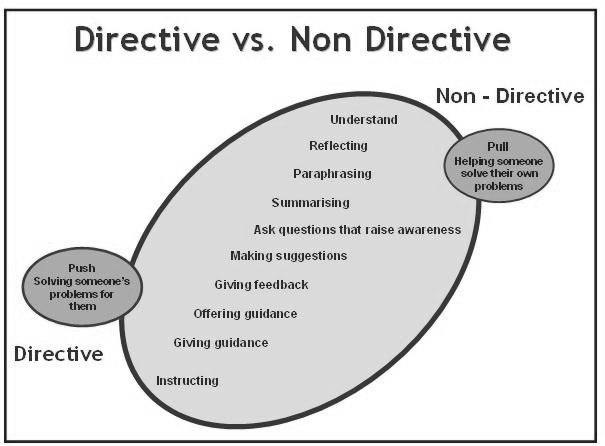Like any high-performing individual, leaders need to wrap a professional support team around them if they are to give themselves the best chance of success. That team must be trustworthy, objective, and acting always in the leader’s best interests. This post unpacks the difference between a coach, mentor and therapist and explains why, together, they can make up a such a cohesive support team.

Why entrepreneurs need a coach
Founding and building a business is hard. I’m humbled when founders share with me highly emotional accounts of just how hard it really is. As a CEO client who had just raised a substantial amount of funding once said to me: “I feel trapped between my investors looking down at me and my team looking up.“
As your business grows, there are less people with whom you can talk openly and honestly with, who understand what you are going through, and who will give you the support you need. I was one of the very few people with whom that person could really share what was going on.
According to the founder of coaching in the UK, John Whitmore, the purpose of coaching is to help people “unlock potential to maximise their own performance”. Coaching is a non-directive intervention that helps someone to learn rather than being directly taught. A coach will ask questions that will help you self-reflect and raise your self-awareness (see 4 questions to improve your leadership self-awareness). They will not tell you what to do, rather help you to “acquire the facts from within” and synthesise information in order to arrive at your own judgements and solutions, and make better decisions.
Though there are leadership behaviours that are generally encouraged and discouraged, there is no right or wrong way to lead. A coach will help you explore your leadership style, learn what works and doesn’t work for you and discover the leader that you want be. By discussing and working through practical day-to-day leadership and business challenges, coaching sessions also provide you with the opportunity put your learnings into action. Because it takes time to reflect on and learn about ourselves, it’s important to view coaching as a process and not a quick fix.
Why entrepreneurs need a mentor
The words coach and mentor are often used interchangeably, but there is an important difference. The word mentor originates from Greek mythology. When Odysseus sets out for Troy, he entrusts his house and the education of his son Telemachus to his friend Mentor. He leaves Mentor with the instruction to “tell him all you know”. Those words are significant; the essence of mentoring lies in a Directive form learning, based upon the transfer of the mentor’s knowledge and previous experience. The role of the mentor is pass on their knowledge to their mentee. John Whitmore quotes David Clutterbuck, from his book Everyone Needs a Mentor (Amazon UK, US):
In spite of the wide variety of names it is given… all the experts and communicators appear to agree that it has its origins in the concept of apprenticeship, when an older more experienced individual passed down their knowledge of how the task was done and how to operate in the commercial world.
Mentors may or may not be older, but they are always more experienced. For any leader, having the ear of someone who has been on a similar journey to them, perhaps more than once, is incredibly reassuring. It is because a mentor’s approach is more experienced-based that it is referred to as being Directive, as opposed to the Non-Directive approach used in coaching.
A good mentor will be an inspiring individual who you look up to and respect for their knowledge, wisdom and sense of shared values. They will pass on advice, share opinions and help you navigate tricky situations with greater ease. They’ll likely open up connections for you among their network. Because they are more directive, they may help you make decisions and reach conclusions quicker than your coach might. That’s not to say they are always right, and you might want to use your time with your coach to process their advice and arrive at your own conclusion.
Why entrepreneurs need a therapist
It makes me very happy when coaching clients tell me that they are also working with a therapist. As a coach, my work is predominantly forward looking, practical and performance-based. But because coaching is about opening up clients to possibilities in themselves that they did not even know even about, I am sometimes required to be both backward and inward looking, exploring deeper issues that might be driving certain ways of thinking and behaviours. Whilst any good coach should be comfortable working in that space, exploring the true depths of our actions, cognitions and emotions is the job of a therapist.

Psychotherapy is the term given to a broad church of disciplines that includes psychonalysis, Gestalt therapy, Cognitive Behavioural Therapy (and its variants), psychodynamic therapy and literally hundreds of others (including coaching, according to the British Association of Counselling & Psychotherapy). Wikipedia defines psychotherapy as:
The use of psychological methods, particularly when based on regular personal interaction, to help a person change behaviour and overcome problems in desired ways. Psychotherapy aims to improve an individual’s well-being and mental health, to resolve or mitigate troublesome behaviors, beliefs, compulsions, thoughts, or emotions, and to improve relationships and social skills.
This Talkspace article explains that defining therapy is difficult because it depends so much on the therapist, type of therapy and time period (it also provides a helpful overview of the different types of therapy you might consider). What can be agreed upon is that people often seek the help of a psychotherapist when they have hit the wall, burnt out, or otherwise reached a point at which they can no longer continue in their current state. The medical model that you ‘must be crazy’ if you go to therapy persists but this is changing. Given how relentlessly hard a leader’s role is, does it not make sense to engage with a therapeutic professional before hitting that wall?
In life and business, therapy does not have to be the last resort when everything else has tried and failed. For CEOs, and other members of the leadership team, it should be part of an upfront and holistic package of support. Fortunately, the focus on wellbeing and the mental health of entrepreneurs is now really being discussed and acted upon, but there’s much further to go. I like this proactive approach towards staying healthy, achieving potential, and making a good life and business better!
Who has your back?
I’ve described these three disciplines independently. Whilst there is an important difference between them, they are interdependent. With the right skillset and background, a coach can very easily act as a mentor and vice versa. There are also many coaches who are psychotherapists. What I’ve tried to illustrate are the subtle, but important differences, that exist between the disciplines and give you a flavour for why you might want to seek out help from all three.
Such a complete and coordinated package of support might feel like a huge investment of time and money. So, whilst you might be asking yourself if you can afford to get a coach, mentor and therapist, shouldn’t you also be asking yourself whether you can afford not to?
I’m Richard Hughes-Jones, an Executive Coach to CEOs and senior technology leaders.
My clients are transitional founders, CEOs and executives in high-growth technology businesses, the investment industry and progressive corporates.
Having often already mastered the technical aspects of their craft, I help my clients navigate the complex adaptive challenges associated with executive-level leadership and growth.
I’m based in London and coach internationally. Find out more about my Executive Coaching services and get in touch if you’d like to explore working together.


